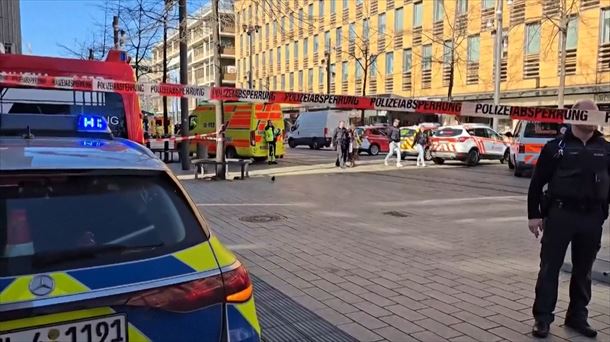German employers warn of the risk of insolvency of many companies
Fearing a series of corporate bankruptcies and a deep economic recession in Germany, Chancellor Olaf Scholz has promised to expand support measures for the German economy. “We are working diligently to expand current programs,” Scholz said in a speech to the German Employers’ Congress on Tuesday, encouraging companies to pay their employees extra so they can cope with the rising cost of electricity. “The federal government has decided to exempt these extraordinary payments of up to 3,000 euros from taxes and social charges if employers and unions agree,” said the Social Democratic politician, who hopes companies will also contribute to joint action.
Shortly before that, the Federal Economy Minister, the green Robert Habeck, had announced new measures to support small and medium-sized businesses, many of them with production problems and even the threat of insolvency due to the staggering rise in energy prices. Habeck emphasized that SMEs with high energy consumption will receive subsidies as soon as possible to meet their electricity and gas bills. It all depends on how quickly the three parties of the governing coalition, Social Democrats, Greens and Liberals, agree, the also federal vice chancellor said.
Rainer Dulger, chairman of the German employers’ association, warned that the gas crisis and high inflation threaten the country with a recession, despite the aid forecast by the Berlin government. “The German economy is facing the current situation with great concern about Germany’s competitiveness as an economic location,” Dulger emphasized at the congress. He added that the German economy is struggling with “a dramatic economic situation, immensely high energy prices and severe shortages in the supply of raw materials, processed products and other goods”, although it has repeatedly shown in the past that it can become an anchor of stability for Germany and Europe.
“That is the signal we want to send today and in the future. If we strengthen the economy, we strengthen this country and create jobs,” said Dulger, chairman of the German Employers’ Association (BDA), who, in statements on the morning news of the German public television ARD, had demanded prompt and effective help for small and medium-sized enterprises. “SMEs must be protected”, he said emphatically. Scholz, for his part, recalled the progress made in the fight against the energy crisis due to the cut-off of gas by Russia as a result of the sanctions for the invasion of Ukraine.The foreign minister stressed that two nuclear power plants that were to be closed by the end of this year will continue to operate in 2023 to avoid power failures and was convinced that the liquefied gas port terminals would be closed by the end of the year. will be operational from next year.
“By the end of next year we will be able to import all the gas we need,” assured the head of the Berlin government. Scholz specifically referred to the liquefied gas terminals that are being commissioned in Stade, Wilhelmshaven, Brunsbüttel and Lubmin, but also to the gas pipelines from Norway and the Netherlands. The German executive will ensure that the gas price falls again, said the chancellor, who also underlined the tripartite commitment to the necessary and urgent energy change. “Hydrogen is the gas of the future and we will create a boom,” he insisted, promising that his executive will pass any laws this year necessary to accelerate any plans to promote alternative energies.
Source: La Verdad
I am an experienced and passionate journalist with a strong track record in news website reporting. I specialize in technology coverage, breaking stories on the latest developments and trends from around the world. Working for Today Times Live has given me the opportunity to write thought-provoking pieces that have caught the attention of many readers.



